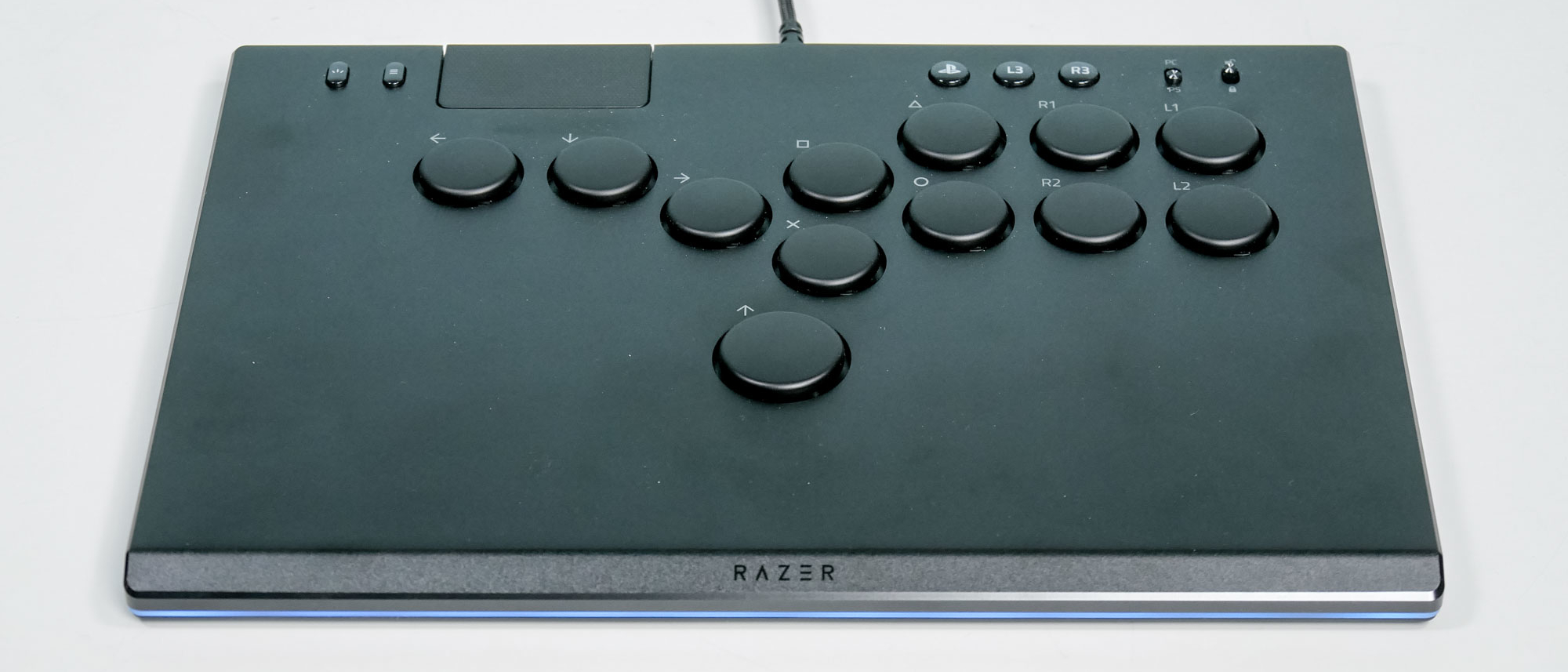Doctor shares 7 common reasons why you sleep hot — plus top tips to cool down
Your bed's not lava, you are — 7 reasons why you sleep hot
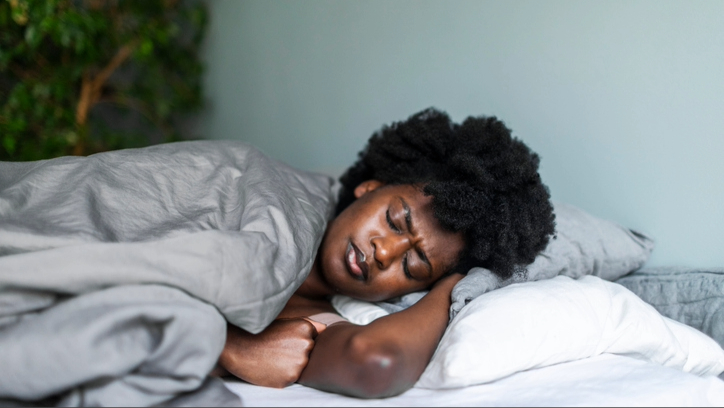
Often find yourself turning into a human furnace at night unable to cool yourself down? You're not alone. According to Gallup News, 57% of Americans are too hot to sleep at least occasionally.
Researching for our best cooling mattress 2025 guide, we've tested dozens of mattresses that promise a cool night's sleep.
"57% of Americans are too hot to sleep"
Yet sometimes people find it impossible to cool down at night, no matter how good their mattress is at regulating temperature, and this can be down to lifestyle choices or medical conditions.
We spoke to Medical Director at Complete Sleep, Dr. David Rosen, to find out the main reasons why you get so hot when you sleep. We also asked him when you should be concerned about nighttime hot flushes and how you can keep yourself cool in the bedroom.
What's the link between temperature and sleep?
Temperature is one of the circadian rhythm's main impetuses, meaning your body's core naturally cools down when it is preparing to sleep. Therefore, a drop in external and internal temperature signals to the brain and body that it is time to wind down.
Healthline says the best temperature for sleep is between 60°F and 65°F (15.5°C and 18.3°C), which is slightly below average room temperature. Hence, it's easy to see how running hot at night can cause sleep disruption.
7 reasons you get hot when you sleep
There is no single cause of nighttime hot flushes. Many physiological, hormonal and environmental conditions, along with lifestyle choices, can make you sleep hot. If you regularly find yourself too warm to sleep, it could be due to one or more of the following reasons…
1. Warm sleep environment
From an environmental stance, your bedroom, bed and nightwear can be causing your nighttime hot flushes.
Dr. Rosen explains bedding and sleepwear made from synthetic fibers and memory foam mattresses trap heat, making you too warm.
He says that, with good ventilation or an air conditioner, you should keep bedroom temperature between 60-67°F (15-19°C). Opt for "breathable, natural fabrics like cotton, linen or bamboo" and "layer light bedding rather than using one heavy blanket."

Dr. David Rosen trained in sleep medicine at JFK Medical Center in Edison, New Jersey and is board-certified. He is a peer reviewer for the Journal of Clinical Sleep Medicine and serves on the American Academy of Sleep Medicine’s Political Action Committee. This committee helps lobby government officials to promote national policy initiatives that benefit the sleep of all Americans. Alongside these roles, Dr. Rosen regularly lectures to the general public on sleep medicine topics.
2. Hormonal changes
Hormones have the upper hand over many bodily functions including sleep and temperature regulation.
Perimenopause and menopause are often cited as the sources of nighttime hot flushes, and this is down to the hormone changes that occur.
The fluctuating and declining estrogen levels during this phase in a woman’s life impact the body's temperature regulation system.
The drop in estrogen specifically disrupts the hypothalamus, which is the region in the brain acting as the body's thermostat. In turn, women become more sensitive to slight climate changes, often feeling sudden sensations of heat.
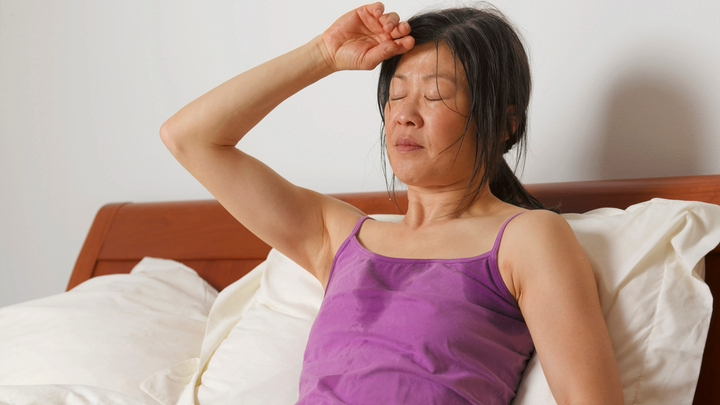
Hormone changes (again fluctuating estrogen levels) also happen during pregnancy to support fetal development. In the same way as menopause, this can induce hot, uncomfortable nights.
Finally, hormones shift constantly throughout women's cycles. As estrogen levels drop during the luteal phase, women can be susceptible to hot flushes and bouts of hot sleeping.
3. Medical conditions
From sleep disorders to anxiety and the occasional fever, there are a range of medical conditions that can cause nighttime hot flushes or sweats. Here's why:
- Sleep disorders: Respiratory disorders like sleep apnea can contribute to nighttime overheating, says Dr. Rosen. "When breathing stops temporarily, the body enters a stress response that can trigger sweating and hot flashes," he explains. "The struggle to breathe also increases physical exertion during sleep, raising body temperature."
- Underlying medical conditions: Medical conditions like hyperhidrosis, hypoglycemia and hyperthyroidism all impact body temperature. Hyperhidrosis is where the body excessively sweats, leading to overheating. Meanwhile, the body responds to low blood sugar levels (hypoglycemia) by sweating or increasing heart rate, leading to hot flushes. And an overproductive thyroid (hyperthyroidism) speeds up metabolism, spiking body temperature.
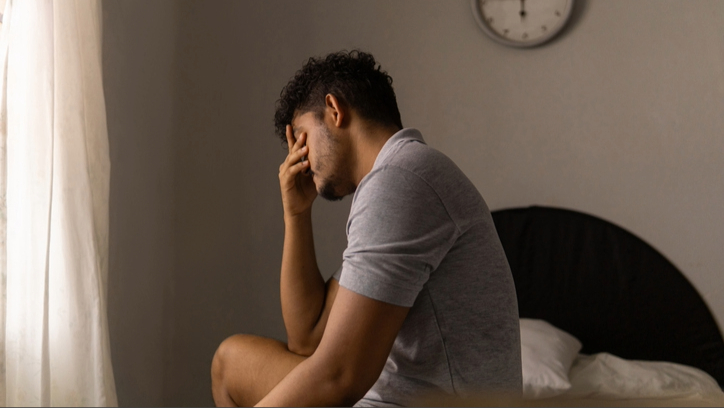
- Mental health disorders: . Dr. Rosen explains that, by activating the sympathetic nervous system and increasing cortisol levels, anxiety and chronic stress can both cause nighttime hot flushes. The feelings of panic trigger the body's fight or flight response. This increases heart rate and blood flow which equals a rise in body temperature.
- Nerve damage: The autonomic nervous system controls involuntary bodily functions including temperature regulation. Nerve damage caused by autoimmune diseases, infections and diabetes can a make you sleep hot as the body's ability to maintain a stable temperature is impaired.
- Fever: Fever-related nighttime hot flushes occur because the body's thermoregulation system is disrupted by the infectious agents. Body temperature elevates while it fights off the illness.
4. Medications
Sleeping hot can be a side effect of medications that affect hormone levels, disrupt the body's thermoregulation or cause vasodilation (blood vessel widening).
Which medications does this apply to? Dr. Rosen list antidepressants, steroids, hormone therapies and some painkillers as potential causes of body temperature rises.
If possible, taking these medications in the morning rather than at night can help you prevent hot flushes from disrupting your sleep, but always consult with a professional before adjusting your medication routine.
5. Exercising before bed
For peaceful sleep you should be cooling down your body before bed, not cranking up the heat.
A study by researchers at the University of Ottawa demonstrates that body temperature remains elevated for as long as 90 minutes post exercise.
Therefore, hitting the gym is not recommended immediately before hitting the hay. Not allowing enough time to fully cool down before bed can mean you'll struggle to drop off as a higher body temperature is not conducive to sleep.
So, consider switching to morning or afternoon rather than evening workouts if you find yourself too warm to sleep. "Exercise regularly but finish at least 3 hours before bedtime," Dr. Rosen says.
6. Food and drink choices
Eating large or calorie-dense meals close to bedtime can lead to heatwaves at night. This is because the increased metabolic activity required for digestion raises body temperature and can disrupt sleep.

You should also pay attention to the afternoon and bedtime snacks and beverages you consume. Dr. Rosen says consuming spicy foods, sugar, caffeine or alcohol 4 to 6 hours before bed can wreak havoc on your sleep temperature.
Research shows spicy foods particularly elevate body temperature during the first sleep cycles.
Elsewhere, science shows caffeine increases core body temperature, which is associated with longer sleep latency and increased wakefulness after sleep onset.
Consuming these foods in the evening shouldn't be an issue if it happens occasionally. But if you find late meals repeatedly disturbing your sleep, consider how you can alter your diet and make healthier sleep-promoting choices.
7. Body composition
Sometimes your natural body composition, specifically muscle and fat mass, can be to blame for turning up the heat while you sleep.
Muscles generate heat as a byproduct of their activity, even at rest. Research shows people with greater muscle mass, therefore, produce more heat. This makes them feel warmer at night and can decrease sleep quality
Additionally, as fat in an insulator, people with higher fat percentage retain more body heat. Again, this rises core temperature, making it more difficult to bag quality shut eye.
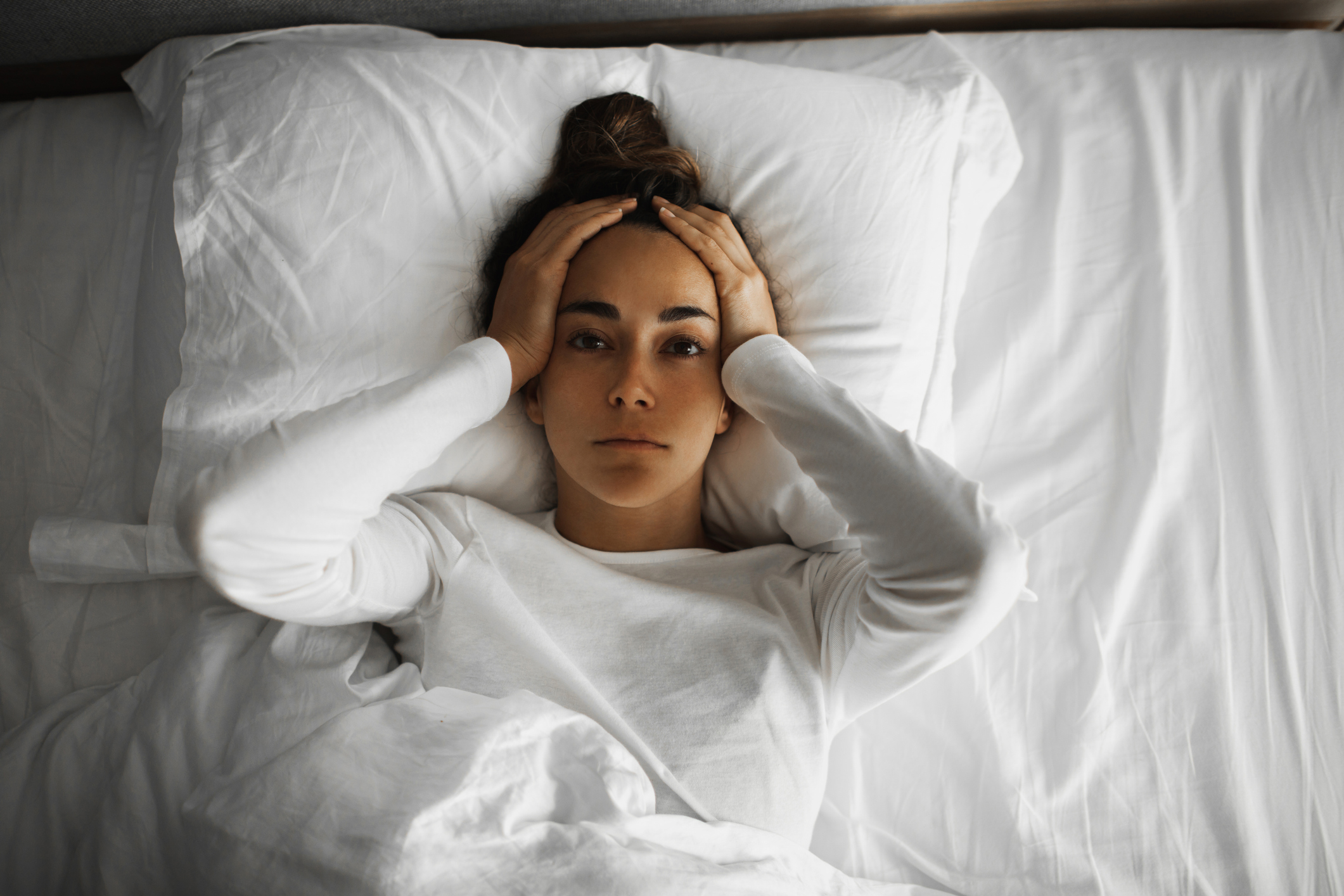
What's it like to sleep hot?
In short, sleeping hot is no fun. It makes bedtime a challenge as you waste time frustratedly tossing and turning, trying to find the cool patches of bedding. This discomfort makes it harder to nod off.
Alongside delayed sleep onset, hot sleepers tend to experience more frequent nighttime awakenings as they wake themselves up by frantically kicking off covers.
Despite being bothersome, hot flushes can sabotage sleep quality by disrupting sleep cycles and decreasing time spent asleep.
As a result of poor quality sleep, hot sleepers can feel groggy in the morning and drowsy during the day. This can lead to signs of sleep deprivation like reduced productivity, physical fatigue and difficulty concentrating.
Tips for cooling down at night
These are the expert-approved tips to follow to help you get better sleep if you tend to run hot at night…
Invest in your sleep space
After thorough testing for our mattress guides, we've found the best mattress for hot sleepers is one that is breathable, moisture-wicking and good at conducting heat.
Many mattresses nowadays have specialized cooling technology like foams infused with high thermal conductivity elements or cool-to-touch covers.
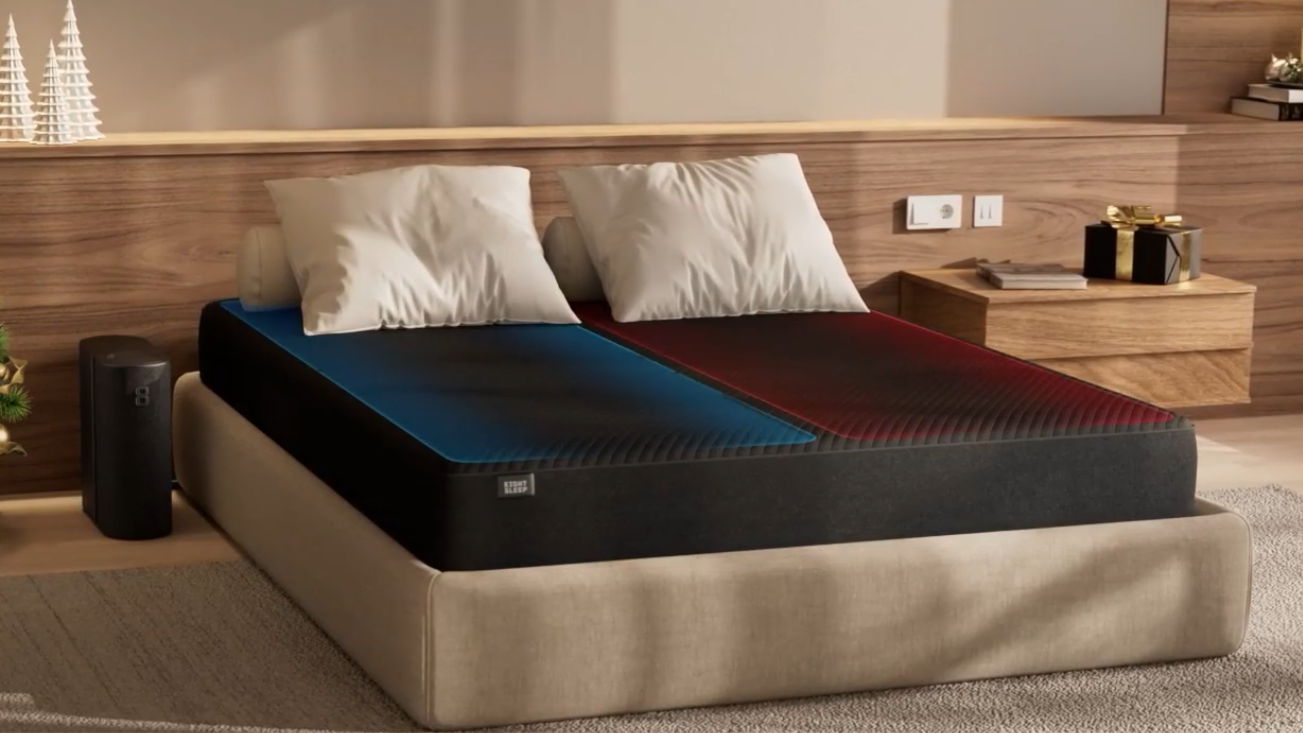
The best smart beds even have dual control climate systems that keep you at an optimal sleep temperature all night long. It is worth investing in these beds if you're really struggling to beat the heat at night.
Breathable bedding, cooling pillows and lightweight nightwear will also go a long way in helping you regulate your sleep temperature.
As cozy as thick blankets and fluffy pyjamas can be, they can be also be stuffy — no good for keeping cool and sleeping well.
Try sleeping alone
Sleeping with a partner, pet or child can cause hot flushes as our bodies naturally release heat during sleep as part of the cooling process. So, a bed with more bodies tends to be warmer.
Temperature can cause arguments in the bedroom. A recent study by Naturepedic found 39% of couples sleep separately because they prefer different temperatures.
If you and your partner are struggling to find a compromise, a sleep divorce may be in order. Sleeping separately can help you cool down and stop your nighttime hot flushes affecting your partner's sleep quality.
One well-rested partner is better than none, right? At least they'll have energy for the household chores.
Keep hydrated through the day
Sweating is your body's way of cooling itself down. But to produce sweat (and release heat) your body needs ample water.
Hence, staying hydrated throughout the day can improve overall temp regulation, helping you sleep peacefully at night.
Timing your hydration is key. Leaving it too close to bedtime to guzzle litres of water will lead to more toilet breaks during the night, disrupting your sleep.
So drinking smaller quantities of water more consistently through the day is better for hydration levels and sleep quality.
"Keep water by the bed, but complete most drinking 1 to 2 hours before sleep," Dr. Rosen says.

Take a warm bath at bedtime
It may sound contradictory but a warm bath or sauna session before bed helps cool down your core temperature as it kickstarts the process of vasodilation.
Vasodilation is when muscles relax and blood vessels widen, enhancing circulation throughout the body.
Blood flows to the skin's surface (hence why your skin tends to get red in a warm bath) and heat is transferred from the body's core to the skin, where it can be dissipated into the environment.
A study published in the American Journal of Physiology provides evidence that this thermoregulatory process promotes readiness for sleep. However, Dr. Rosen warns this bath (or shower) should be lukewarm rather than hot.
Follow a nighttime routine
Getting good quality sleep is all about regulating your natural sleep-wake cycle, aka the circadian rhythm. Maintaining a consistent, relaxing nighttime routine helps your body recognise when it is time to prepare for sleep.
Your body is a clever machine and when it is told to sleep (by the recognisable wind down routine) it's temperature should naturally drop rather than spike.
A bedtime comprising of calming activities like reading, listening to soothing sounds, meditating or stretching also helps ease anxiety. In turn, your body avoids the fight or flight response known to induce hot flushes.
Dr. Rosen also suggests using a cold compress on pulse points in the wrists, neck or behind the knees as part of this routine if you find yourself hot around bedtime.
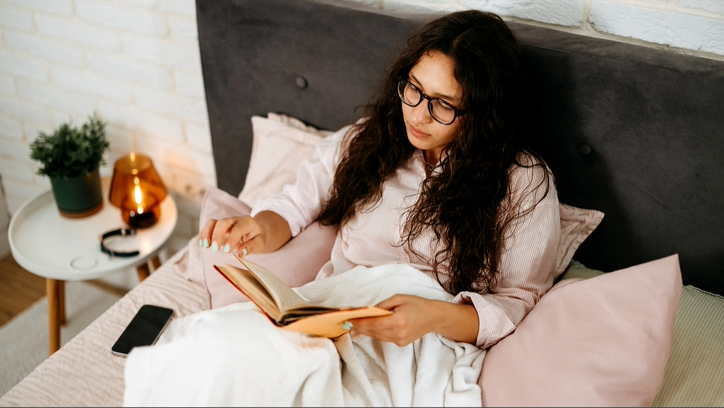
When should I be worried about sleeping hot?
Sleeping hot occasionally isn’t anything to worry about. As we've explored here, it could be due to changing seasons, a temporary fever or, in women, a natural fluctuation in their cycle.
However if the cooling tips above fail, you’re regularly waking up drenched in sweat, or suspect hot flushes are due to one of the medical conditions listed above, you may require treatment so best to check with a doctor.
Dr. Rosen says you should consult a healthcare provider if:
- Hot episodes are sudden, severe, and new without explanation
- Night sweats are accompanied by unexplained weight loss, fever, or persistent fatigue
- You experience drenching sweats that require changing clothes/bedding
- Hot episodes disrupt sleep significantly and impact daytime functioning
- Symptoms persist for more than 2 to 3 weeks without improvement
- You have other concerning symptoms alongside hot flushes (chest pain, difficulty breathing)
- Hot episodes begin after starting a new medication
- You're male with no previous history of night sweats (especially middle-aged or older)
Sign up to get the BEST of Tom's Guide direct to your inbox.
Get instant access to breaking news, the hottest reviews, great deals and helpful tips.

Eve is a PPA-accredited journalist with an MA in Magazine Journalism from Cardiff University. She is a Sleep Staff Writer at Tom’s Guide and has four years’ experience writing health features and news. She is particularly interested in the relationship between good sleep and overall health. At Tom’s Guide Eve is responsible for coverage and reviews of sleep tech and is our smart and cooling mattress specialist, focussing on brands such as Eight Sleep and Sleep Number. She also covers general mattress reviews, seeks out the best deals to produce tried-and-tested buyer's guides for sleep accessories and enjoys writing in-depth features about sleep health. She has been involved in rigorous testing procedures for mattress reviews in our Sleep Studio and has interviewed experts including sleep doctors and psychologists. When not covering sleep at Tom's Guide, Eve enjoys writing about health and fitness, food and culture.
You must confirm your public display name before commenting
Please logout and then login again, you will then be prompted to enter your display name.
